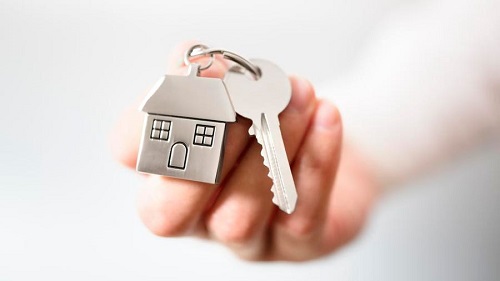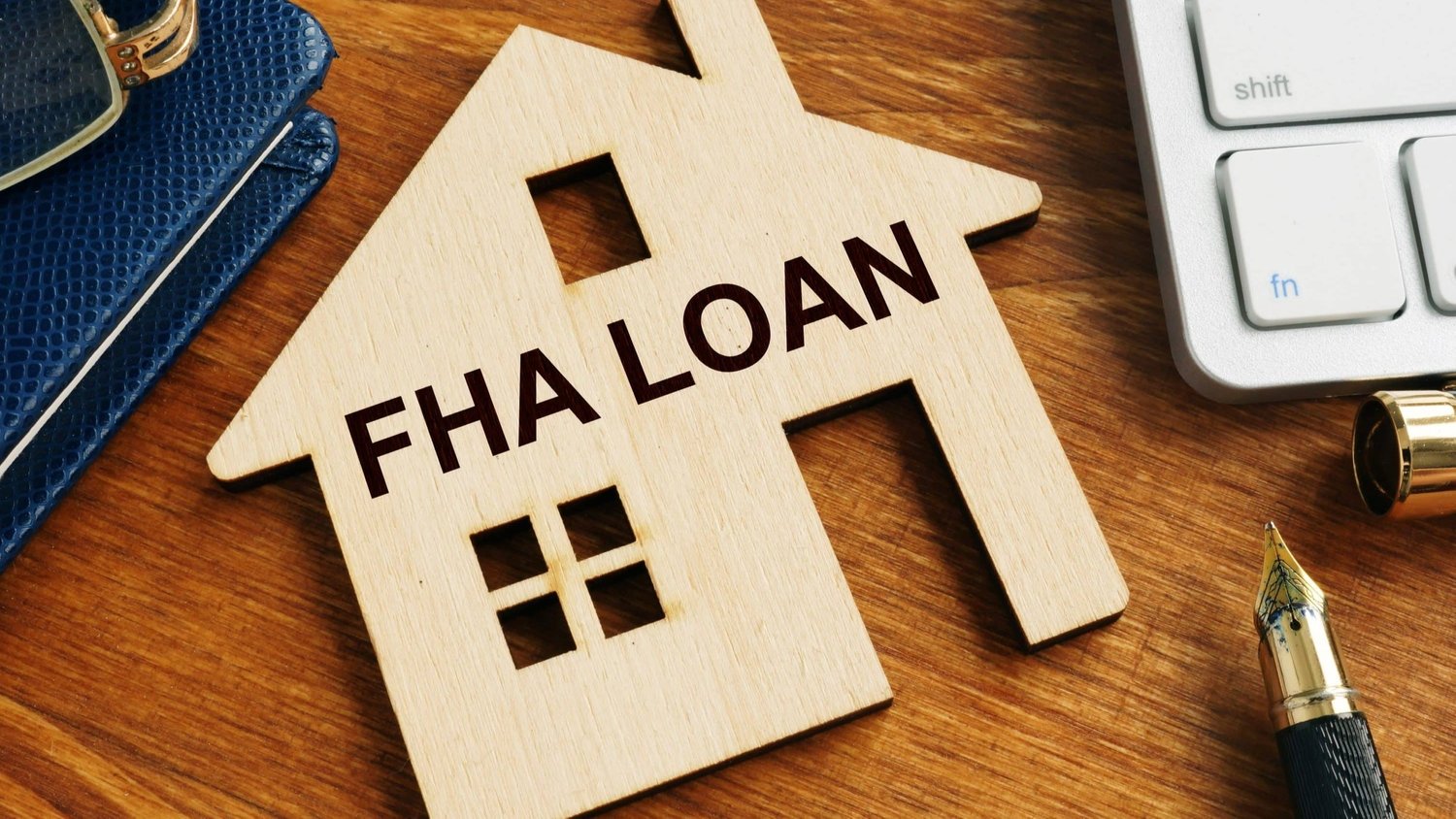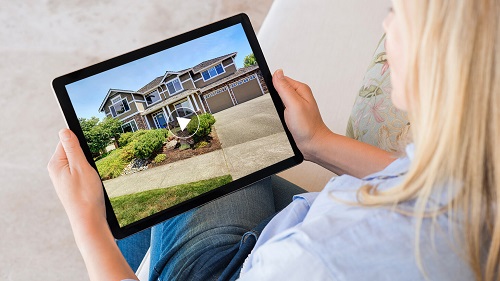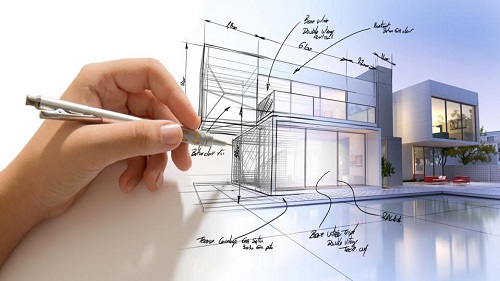
Mortgage Dove
How To Buy A House With Zero Down in 2022
For many people buying a house, saving money for a down payment may be an enormous obstacle since home prices keep increasing. However, there are mortgage options especially designed for those who can't save for the standard 20% down payment on the loan amount or don't want to wait before they can.
This article will have you look at some options you can choose from when trying to purchase a house without any down payment. We'll also provide some options for low-down-payment loans and the things you can do if you have a low credit score.
It's not necessary to require a huge down payment if you want to become a homeowner. There are many options that will enable you to get your home without sacrificing every penny you have saved. Below are the three main paths that may be the best for you:
- Find out if you're eligible for a mortgage with zero-down mortgage options. Bank of America just started an initiative with this objective to help minority communities. USDA and VA loans permit you to take out a mortgage with no downpayment. For you to be qualified, you must have certain requirements related to the property’s location, the amount of money you make, and whether you or your spouse were a member of the military.
- Find low-down-payment mortgages. Conventional mortgages as well as government-backed mortgages get offered to individuals who have a down payment less than 20 percent.
- Contact your friends or family members for advice. A lot of lenders allow you to utilize gift funds from a family member or, in some instances, a friend, a labor union, or even an employer for your down payment. You'll need an official letter from the person who made the gift to prove that you don't have to pay the amount back.
Options for a zero-down mortgage
The quickest method of avoiding a down payment is to get one of the two no-down payment government-backed mortgage programs, such as USDA and VA loans. Additionally, if you're eligible for government loans, there is a chance to secure a zero-down loan from the local credit union, particularly in the case of being a professional group member. They're not very common, however, they are worth looking into should you be able to find one.
- USDA loans
The U.S. Department of Agriculture (USDA) supports USDA home loans, which is a mortgage guarantee program designed for people buying a house within a designated rural area. USDA loans do not ask for a down payment, but the borrowers must meet income and credit qualifications to be eligible. In certain cases, it is necessary to be a first-time homebuyer. You can check your eligibility by visiting the USDA website.
While there is no down payment required for a USDA loan, there's an upfront guarantee fee, which borrowers can roll into the total mortgage cost. Although you don't have to pay any amount at the beginning if you decide to incorporate it into the loan, bear in mind that it will add to the loan balance and will accrue interest throughout the loan which will mean that you'll have to pay more in total.
- VA loans
If you're a member of the military, veteran, or surviving spouse, you may be qualified to receive the VA loan backed by the U.S. Department of Veterans Affairs (VA) that requires no money down. There's no mortgage insurance required with this kind of loan, however, like the USDA loan, you still have to pay an upfront funding fee that can be added to the mortgage. (Note that you could lower the funding fee by making a down payment, but there is no down payment required.)
Another benefit to VA loans is the fact that a lot of lenders provide better rates for these loans and can save you some money during the term of your loan.
Mortgage options with low-down payments
If you aren't qualified for one of the zero-down mortgages, you could still be able to buy a house with the next best option: a low-down payment mortgage. Here are some of the available options:
- FHA loans
It is backed by the Federal Housing Administration (FHA). The FHA loan requires only 3.5 percent down and credit scores that are as low as 580. If the credit score is between 500 and 579, you could be eligible for the higher down payment which is 10 percent. It's a preferred option for those who have less-than-perfect credit. Similar to other government-insured programs, FHA loans are suggested by private mortgage lenders. Therefore, you might also need to meet the lender’s requirements to be eligible. Furthermore, you will need to pay FHA mortgage insurance which will be added to your monthly payment and the cost of the loan.
- HomeReady mortgage
The Fannie Mae HomeReady mortgage is offered by many mortgage lenders. It is backed by Fannie Mae which is a government-sponsored enterprise (GSE). The minimum down payment for the HomeReady loan is 3 percent and the loan itself offers flexible underwriting. Although you'll need to pay for mortgage insurance to cover the low down payment, that's often priced lower than you would pay in a conventional loan.
- Home Possible mortgage
Home Possible is a mortgage program that is backed by Freddie Mac. Similar to HomeReady, it has a 3 percent down payment requirement. It is possible that borrowers will have to cover mortgage insurance and it could be at a lower cost. In addition, they can also benefit from the same credit flexibilities.
- Conventional 97 mortgage
A Conventional 97 mortgage is another GSE-backed loan offered by Fannie Mae and Freddie Mac which only requires a 3 percent down payment. It's important to remember that conventional mortgages have a higher minimum credit score which is 620. Similar to other low-down-payment programs, you must be financially ready to cover mortgage insurance every month.
- Good Neighbor Next Door
The Good Neighbor Next Door (GNND) program is available to borrowers employed in a select group of public service professions, such as firefighters, teachers, law enforcement, and emergency medical technicians, who are looking to purchase a house in a qualifying area. The program, sponsored by the U.S. Department of Housing and Urban Development (HUD), offers a reduction of up to 50 percent on homes with a down payment of only $100. The program requires the borrower to qualify for a first mortgage and the discounted part of the home comes as another form of a loan. If the borrower meets the program conditions, the second mortgage doesn’t have to be repaid.
Options for first-time home buyer loans with bad credit
Do you have bad credit that is preventing you from being able to get a mortgage? Credit plays an important aspect in your ability to obtain a mortgage. Here are two ways to help those who are more concerned with their credit score rather than your down payment
For Credit Score Between 500 And 580
FHA loans aren't just ideal for those with a low down payment. They're also a viable alternative if you have a low credit score. You only need a 580 credit score to be eligible for an FHA loan, which comes with lower down payments. However, you'll need to compensate by paying a higher down payment if you have a credit score of less than 580. It is possible to obtain a loan with a credit score of as low as 500 points if you're able to pay 10% of the down payment to closing.
For Credit Score Under 500
It is necessary to increase the score of your credit if it's less than 500 or you won’t be eligible to receive the FHA loan. Even if you're able to obtain an FHA loan now, there are plenty of advantages when applying for loans with a higher score. Securing a higher credit score to purchase houses gives you more lender options and lower interest rates. A rate that's only one fraction of a percentage point less can help you to save thousands in the loan term, so improving your credit score is well worth the effort.
Below are some tips to effectively improve your credit score:
- Repay your outstanding debts.
- Reduce the amount you put on your credit card every month.
- Make sure that you pay your credit card and loan payments on time.
- Take out a small personal loan and repay it.
- Consider applying for a secured credit card, which is a type of credit card that requires a deposit that you'll have to repay in full amount.
- Remove any mistakes from your credit report.
- Keep your eyes open as your accounts become older and more appealing to lenders.
Pros and cons of no down payment loans for homes
The possibility of purchasing homes with no or minimal down payment may be appealing but there are also disadvantages.
Pros
- You can purchase a home faster. If you don't need to put together an enormous amount of money for a down payment, it's easier to purchase a home earlier, particularly if you're in an area where prices are spiking. If you'd like to profit from the best deal or dip in the market, you'll be able to move fast and not need to save up for a down payment.
- You can keep more cash on hand. Even if you can cover a substantial down payment, you may like to have some cash for renovations or to achieve a different goal. If you have a zero or low-down-payment mortgage, this extra cash remains accessible to you.
Cons
- You'll be left with little or no equity. If you begin with a no-down-payment home loan, you're not going to have much equity, or even any in your home from the beginning since you'll be responsible for more than 100 percent of your property's value. That means that you'll be unable to draw on your equity in the event of an emergency. During an economic downturn, you may end up owing more on the property than what it's worth, making it hard to sell or move if it should become necessary.
- The interest rate might get higher. In certain situations, you might need to pay a higher mortgage rate for a no- or low-down payment loan. That is because, with less money tied to your home, a mortgage lender may consider you more of a risk. Of course, the higher your interest rate, the more you'll have to pay overall.
- You'll require a bigger mortgage which will result in a higher cost. The less you deposit, the more you'll have to borrow. That means you'll have to pay more in interest throughout that loan.
- The offer you make for a house may not be as compelling. It's a highly competitive market for housing across the nation. If another person makes an offer for a property with a significant down payment, the buyer may appear to be the best option for a smooth deal in the eyes of the seller.
- There is a chance that you will need to pay additional charges. Some home loans that do not require a down payment come with additional charges, which increase the price the borrower has to pay.
Frequently asked questions about zero-down or low-down payment mortgages
How can I tell if a zero-down or low-money-down loan is suitable for me?
If you fulfill the requirements and are eligible for a USDA, VA, FHA, HomeReady® , or Home Possible® loan, not having to pay an enormous amount of down payment is an advantage, especially if you need to cover closing costs. Avoiding or reducing your down payment means you can save money to use in case unexpected circumstances occur.
That is important to remember if you're unsure about your down payment plan. There's no need to make a better financial decision to pay more rather than less. Paying the 20% down payment and avoiding PMI isn't a good idea if it will drain funds in your savings. Check your financial situation and ensure you've explored all options before putting down money for a house.
What can I do If I am not eligible for a low-down loan?
A possible alternative to low-cost down loans is to use down payment assistance (DPA) . If the idea of putting funds down to purchase a house is a major obstacle for you, but you're not eligible for a government-backed loan, the DPA could be the ideal option for you. The criteria for these loans or second liens can differ in each case, so it's worth researching your DPA options and determining the benefits you could be eligible for.
What can I do to get downpayment assistance?
Down payment assistance programs are offered in every state. Certain programs are only available to specific cities or counties while others are only available to certain groups, such as school teachers or nurses. The majority of them are limited to first-time homebuyers and come with income limitations, but the income limits are higher in areas that have higher housing costs.
How can I save money to pay for a down payment?
- Calculate your budget. If you're looking to apply for a loan, lenders will look closely at your financial situation to determine how much you can afford.
- Reduce costs everywhere you can. Saving isn't just about making more money, it's also about spending less. Even when you're living on a budget, there are still ways to reduce your expenses.
- Think about adjusting your financial goals in the short term. If you're 25 and are looking to buy a home, for instance, consider cutting back or pressing a pause on your retirement savings to move these funds toward your target.
- Look for savings matching programs. Saving for a down payment does not have to be a burden on your shoulders. Certain mortgage lenders offer a hefty boost that will match your savings to a specific dollar amount.
- Be sure that your savings are also earning. Although it's difficult to find a lucrative interest rate on a no-risk savings account, there are credit unions and banks which offer an above-average yield on your savings. If you're saving enough to purchase a home, every dollar counts.
"Mortgage Dove makes home financing convenient for every American. You can count on us to provide a home buying experience tailored to your personal needs and financial situation. We strive to give you the peace of mind that your home financing goals can be achieved.”

Mortgage®
www.mortgagedove.com



